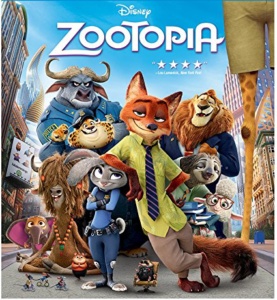 Longtime movie producer and screenwriter, Gary Goldman, whose notable credits include writing Total Recall and producing Minority Report, filed a federal lawsuit for copyright infringement this week against the Walt Disney Company. The “Zootopia” copyright lawsuit accuses Disney of stealing his idea for ‘Zootopia,’ the award-winning best animated picture for both the Golden Globes and Oscars. Goldman claims that Disney copied his character designs, themes, lines of dialogue, and even the name “Zootopia” from a project that he first developed in 2000 and pitched twice to Disney execs before the Disney project was announced in 2010.
Longtime movie producer and screenwriter, Gary Goldman, whose notable credits include writing Total Recall and producing Minority Report, filed a federal lawsuit for copyright infringement this week against the Walt Disney Company. The “Zootopia” copyright lawsuit accuses Disney of stealing his idea for ‘Zootopia,’ the award-winning best animated picture for both the Golden Globes and Oscars. Goldman claims that Disney copied his character designs, themes, lines of dialogue, and even the name “Zootopia” from a project that he first developed in 2000 and pitched twice to Disney execs before the Disney project was announced in 2010.
“Goldman says that he registered a treatment for a live-action film called “Looney” with the Writers Guild of America, West, in August 2000. According to the suit, “Looney” was to be the first installment in a “Zootopia” franchise that would also include an animated “Zootopia.” Goldman’s concept included a human animator who creates a cartoon animal world meant to reflect a complex human society. According to Goldman, “the society included class and power structures based on the characteristics of different species.”
Read a more in depth article on Variety about the “Zootopia” copyright lawsuit and the alleged strikingly similar characters and concepts between Goldman’s “Zootopia” and Disney’s Zootopia.
What can you do to prevent copyright infringement like this from happening?
First, it is essential to understand that copyright law does not protect ideas themselves. In fact, courts have declared: “Ideas are as free as the air.” Once your idea is “fixed in a tangible means of expression,” such as a script written out, you own the copyright, and the expression of that idea is protected.
Prior to sharing a movie idea or any creative idea, you can protect yourself by getting the person you pitch to agree to compensate you for sharing the idea if they wind up using it. These are known as confidentiality agreements, or non-disclosure agreements. A contract can be implied-in-fact through an oral agreement or communications through email. It is ideal to have something in writing, although with the fast-paced entertainment industry, that is not always feasible. Confidentiality agreements and NDAs are an important aspect to this process, as they will help safeguard the non-public business information such as proprietary and confidential information, like the movie script. The purpose of this type of agreement is to allow the holder of confidential information to share it with a third party. The third party is then obligated to keep the information confidential and cannot use it without expressed permission from the holder of the information.
Have an idea you need to protect? Contact The McHattie Law Firm to learn more.

